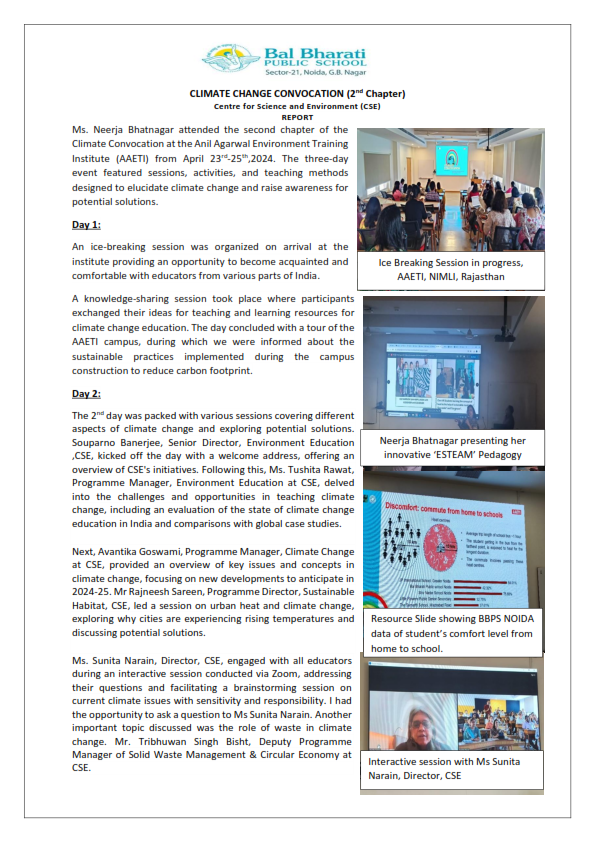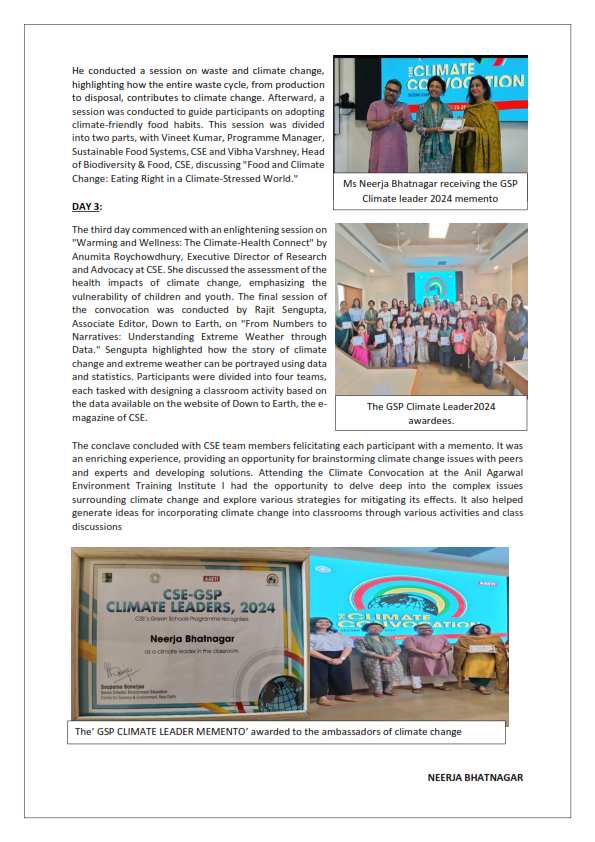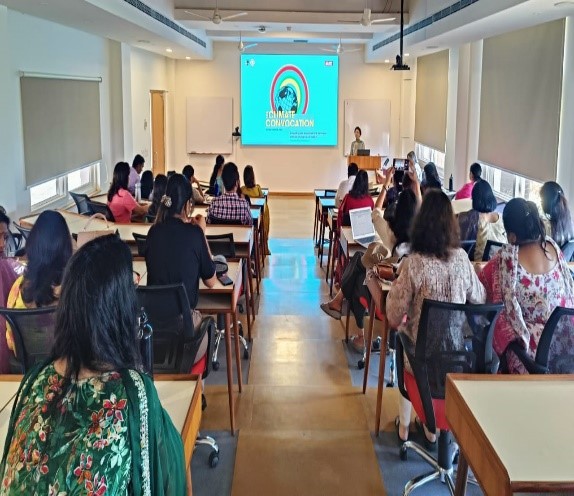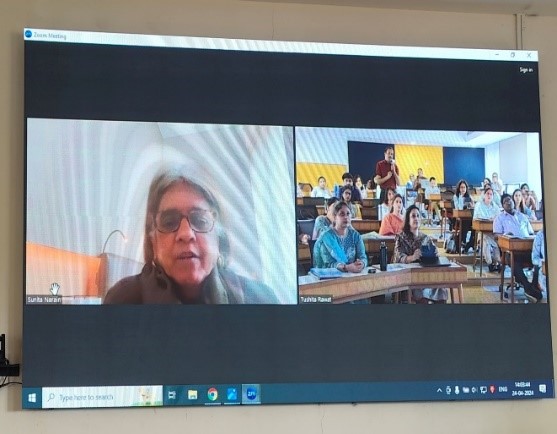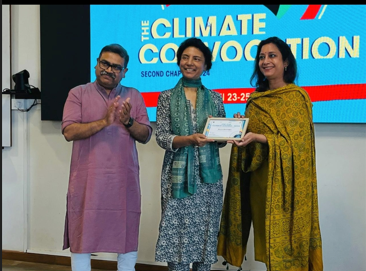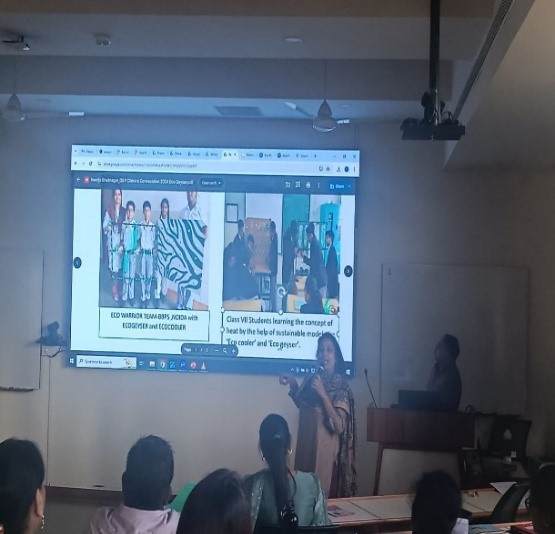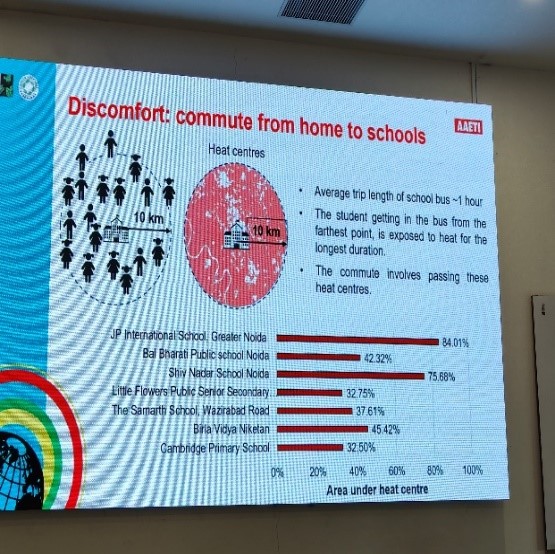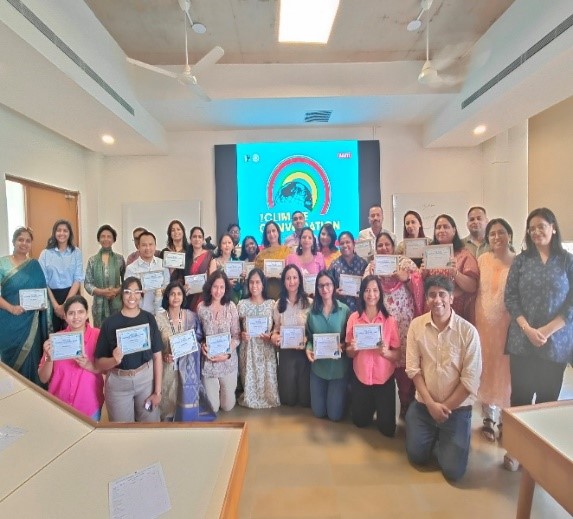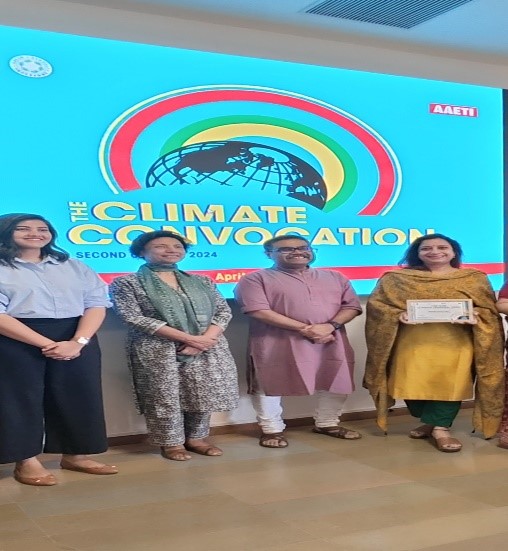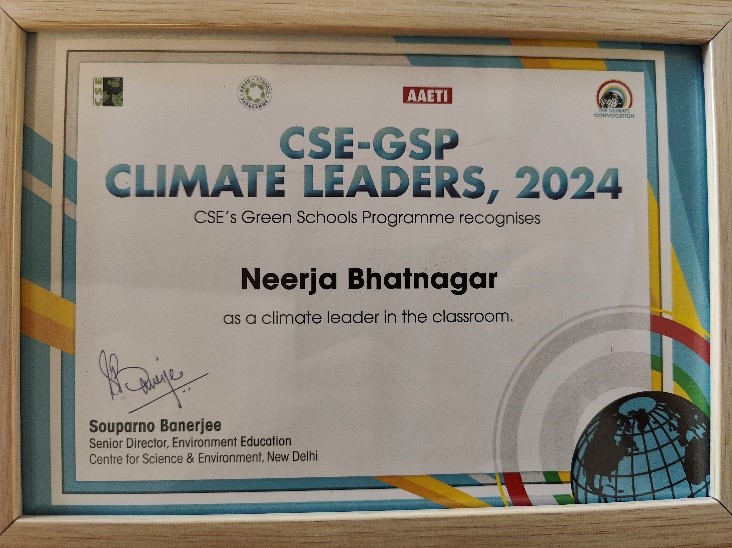CLIMATE CHANGE CONVOCATION (2nd Chapter)
Centre for Science and Environment (CSE)
Ms. Neerja Bhatnagar attended the second chapter of the Climate Convocation at the Anil Agarwal Environment Training Institute (AAETI) from April 23rd-25th,2024. The three-day event featured sessions, activities, and teaching methods designed to elucidate climate change and raise awareness for potential solutions.
Day 1:
An ice-breaking session was organized on arrival at the institute providing an opportunity to become acquainted and comfortable with educators from various parts of India.
A knowledge-sharing session took place where participants exchanged their ideas for teaching and learning resources for climate change education. The day concluded with a tour of the AAETI campus, during which we were informed about the sustainable practices implemented during the campus construction to reduce carbon footprint.
Day 2:
The 2nd day was packed with various sessions covering different aspects of climate change and exploring potential solutions. Souparno Banerjee, Senior Director, Environment Education ,CSE, kicked off the day with a welcome address, offering an overview of CSE's initiatives. Following this, Ms. Tushita Rawat, Programme Manager, Environment Education at CSE, delved into the challenges and opportunities in teaching climate change, including an evaluation of the state of climate change education in India and comparisons with global case studies.
Next, Avantika Goswami, Programme Manager, Climate Change at CSE, provided an overview of key issues and concepts in climate change, focusing on new developments to anticipate in 2024-25. Mr Rajneesh Sareen, Programme Director, Sustainable Habitat, CSE, led a session on urban heat and climate change, exploring why cities are experiencing rising temperatures and discussing potential solutions.
Ms. Sunita Narain, Director, CSE, engaged with all educators during an interactive session conducted via Zoom, addressing their questions and facilitating a brainstorming session on current climate issues with sensitivity and responsibility. I had the opportunity to ask a question to Ms Sunita Narain. Another important topic discussed was the role of waste in climate change. Mr. Tribhuwan Singh Bisht, Deputy Programme Manager of Solid Waste Management & Circular Economy at CSE.
He conducted a session on waste and climate change, highlighting how the entire waste cycle, from production to disposal, contributes to climate change. Afterward, a session was conducted to guide participants on adopting climate-friendly food habits. This session was divided into two parts, with Vineet Kumar, Programme Manager, Sustainable Food Systems, CSE and Vibha Varshney, Head of Biodiversity & Food, CSE, discussing "Food and Climate Change: Eating Right in a Climate-Stressed World."
DAY 3:
The third day commenced with an enlightening session on "Warming and Wellness: The Climate-Health Connect" by Anumita Roychowdhury, Executive Director of Research and Advocacy at CSE. She discussed the assessment of the health impacts of climate change, emphasizing the vulnerability of children and youth. The final session of the convocation was conducted by Rajit Sengupta, Associate Editor, Down to Earth, on "From Numbers to Narratives: Understanding Extreme Weather through Data." Sengupta highlighted how the story of climate change and extreme weather can be portrayed using data and statistics. Participants were divided into four teams, each tasked with designing a classroom activity based on the data available on the website of Down to Earth, the e-magazine of CSE.
The conclave concluded with CSE team members felicitating each participant with a memento. It was an enriching experience, providing an opportunity for brainstorming climate change issues with peers and experts and developing solutions. Attending the Climate Convocation at the Anil Agarwal Environment Training Institute I had the opportunity to delve deep into the complex issues surrounding climate change and explore various strategies for mitigating its effects. It also helped generate ideas for incorporating climate change into classrooms through various activities and class discussions

